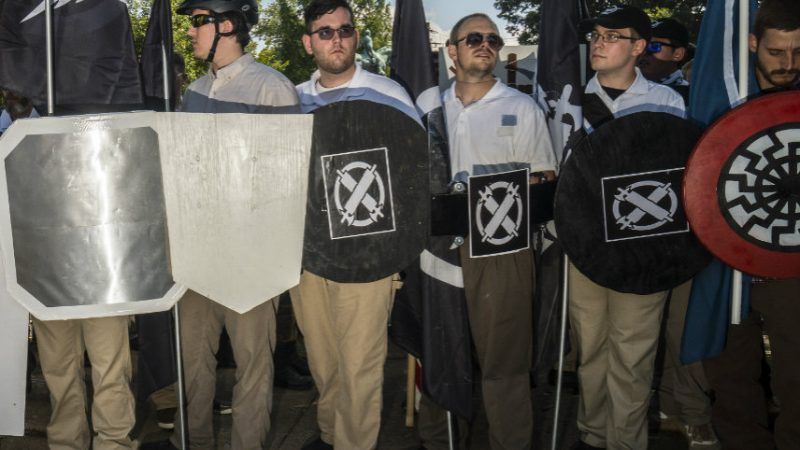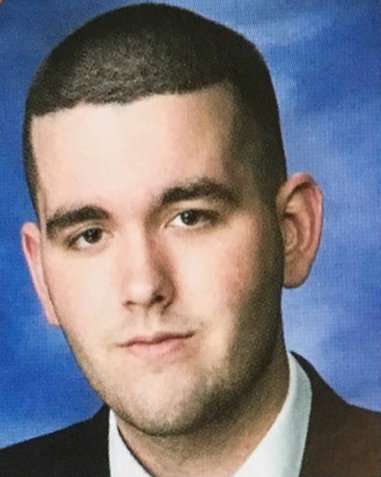School to Former Students: Shut Up About James Alex Fields' Nazi Past
Why are Boone County Schools bureaucrats trying to whitewash the Charlottesville murder suspect's history?


When James Alex Fields Jr. drove his car into a crowd of protesters, killing one and injuring 19 others, Fields' former classmates, teachers, and neighbors rushed forward with stories of a boy infatuated with Adolf Hitler and the Nazi movement.
The one oddly discordant voice was that of Barbara Brady, a spokeswoman for Boone County (Kentucky) Schools, where Fields was a student. In what smacks of a school district striving to cover its own butt, Brady said there were never any complaints about Fields' behavior during his time in Boone County and suggested the young adults interviewed about him were merely hungry for media attention.
"Now they are crawling out of the woodwork to get their 15 seconds of fame," Brady said in an email exchange with the Cincinnati Enquirer, "and say they knew something back then."
And they certainly did come out. In publication after publication, those who knew Fields as a student at Cooper High School portrayed him as a quiet but anti-social boy who had long taken a liking to Naz ideology, spewing bigotry against nonwhites and glorifying Germany's actions in World War II.
Former classmates at the small, predominantly white high school he attended told Vice News that Fields was fond of wearing a belt with swastikas on it, drawing swastikas all over his things, and picking (verbal) fights about race-related topics. Keegan McGrath, who roomed with Fields on a school trip to France and Germany, told the Associated Press that Fields spent the trip praising Hitler, explaining why the French were inferior to Germans, and refusing to associate with French students. Another ex-classmate said Fields would often call a Muslim female student a terrorist.
Caitlin Wilson, who went to school with Fields for years, told the Enquirer that he was drawing swastikas and talking about his love for Hitler as early as middle school.

Derek Weimer, a former teacher at Cooper High School, told WKRC Cincinnati that Fields was not a behavioral problem, but "it was clear. He loved Hitler and he loved the Nazi movement. They were all geniuses and, you know, the whole white supremacy thing." (At home, however, his behavior was a different story: 911-call transcripts show Fields' mother, widowed and wheelchair-bound, feared for her own safety around her son sometimes.)
Weimer and several Cooper High School alums said they talked to school leaders about Fields.
Brady said the district had received no such reports, from either Weimer or former students. She then used this alleged lack of official complaints as a way to discredit their accounts.
"How can you trust that information now if they didn't do anything about it then?" Brady asked in the email to the Enquirer.
Of course, multiple folks say they did raise flags about Fields. But beyond that, not every doodled swastika or bigoted remark from a fellow student is the kind of thing kids would report to authorities. A lack of tattling to the principal that Fields said something nice about Hitler doesn't mean he didn't say nice things about Hitler.
And regardless of whether reports were made, the district may have lacked grounds to act, at least in a diciplinary manner. High school students have First Amendment rights, and we don't know if Fields' antics ever crossed the line into prohibited speech or actual misconduct.
Still, this incident could serve as a good jumping-off point for exploring what roles and responsibilities school officials, teachers, classmates, and community members have (and don't have) when it comes to young people and radically racist rhetoric or extremist views. It's sad that school bureaucrats in Boone County seem more concerned with deflecting potential criticism in any way possible—even if that means casting aspersions on alumni simply for speaking out—than with fostering a fruitful discussion about how to prevent domestic terrorism.


Show Comments (117)